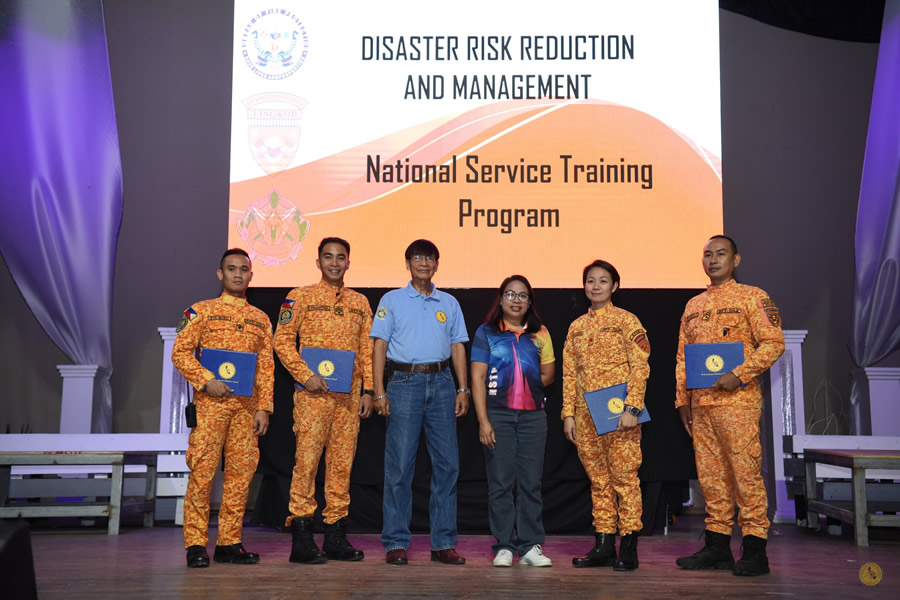By Karren Jay G. Asgar

FO3 Patrick Abram D. Lenaming (2nd from L), CPU NSTP-ROTC Coordinator 2LT Artemio I. Romingquit PA (Ret) (3rd from L), CPU NSTP Coordinator Prof. Annalie D. Gilongos (3rd from R), FO1 Joanna Mae S. Tanaliga (2nd from R), and FO2 Jeff G. Cervantes (Right), gather for a photo opportunity after the plenary session about “Disaster Awareness Preparedness and Management.”
On November 9, 2024, the Central Philippine University – National Service Training Program (CPU-NSTP) held a plenary session focused on “Disaster Awareness Preparedness and Management,” gathering students from the CWTS and ROTC programs. Held at the Rose Memorial Auditorium, the lecture emphasized the importance of proactive response strategies and community resilience in times of natural and man-made disasters.
The event began with an invocation led by Ronaliza M. Cenal, MBA which was followed by the singing of the Philippine National Anthem and CPU Alma Mater song. Ma. Leen C. Gahum, RL delivered the opening remarks in welcoming students from the CPU-NSTP and invited guest speakers. Jaruis John P. Adaya, LPT formally introduced the distinguished resource speakers for the plenary session.
The lecture on “Disaster Awareness, Preparedness, and Management” was delivered thoroughly by a distinguished team of fire safety experts from the Iloilo Fire Station: FO3 Felix Vincent C. Borbon, FO3 Patrick Abram D. Lenaming, FO2 Jeff G. Cervantes, and FO1 Joanna Mae S. Tanaliga. They offered an informative and hands-on session that imparted the audience with important information and skills as pertaining to disasters’ prevention and management.
Following the informative lecture, CPU NSTP Coordinator Prof. Annalie D. Gilongos, RN, MN, together with CPU NSTP-CWTS Coordinator Ma. Leen C. Gahum, RL, and CPU NSTP-ROTC Coordinator 2LT Artemio I. Romingquit PA (Ret), expressed their gratitude by presenting certificates of appreciation and tokens of thanks to the esteemed resource speakers.
The CPU-NSTP continues to lead activities like this, which are essential in shaping responsible citizens and advancing efforts toward building a safer and more resilient society.
